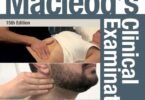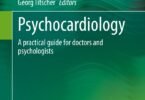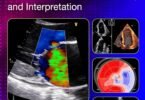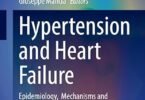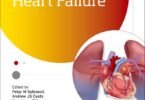
Outline of the Article
- Introduction to the 2023 Focused Update of ESC Guidelines for Acute and Chronic HF
- Authors and Publication Details
- Significance of the Focused Update
- Key Recommendations Addressed
- Sodium-Glucose Co-Transporter 2 (SGLT2) Inhibitors
- Intensive Treatment Strategy Post HF Hospitalization
- Treatment for Patients with Type 2 Diabetes Mellitus (T2DM) and Chronic Kidney Disease (CKD)
- Intravenous Iron Supplementation
- Impact on HF Treatment Paradigms
- Implications for Medical Practice and Patient Care
- Conclusion
- FAQs
2023 Focused Update of ESC Guidelines for Acute and Chronic HF: Key Points
The 2023 Focused Update of the 2021 European Society of Cardiology (ESC) Guidelines for the diagnosis and treatment of acute and chronic heart failure introduces pivotal changes in heart failure management. Authored by McDonagh TA, Metra M, Adamo M, et al., this update showcases critical recommendations shaping the landscape of heart failure care.
Introduction to the 2023 Focused Update of ESC Guidelines for Acute and Chronic HF
Published in the European Heart Journal, this update offers essential insights into the latest recommendations and advancements in the diagnosis and management of acute and chronic heart failure, significantly impacting clinical practices worldwide.
Authors and Publication Details
The update, authored by McDonagh TA, Metra M, Adamo M, et al., underlines the collaborative efforts of the ESC Scientific Document Group, focusing on evolving paradigms in heart failure treatment. Published online ahead of print, it sets the stage for integrating novel approaches into clinical frameworks.
Significance of the Focused Update
This update holds significance by incorporating novel recommendations derived from recent evidence, providing clinicians with updated strategies to address various aspects of heart failure management, including patient care and therapeutic interventions.
Key Recommendations Addressed
Sodium-Glucose Co-Transporter 2 (SGLT2) Inhibitors
The update emphasizes the usage of SGLT2 inhibitors, dapagliflozin or empagliflozin, in patients with HF with both mildly reduced ejection fraction (HFmrEF) and preserved EF (HFpEF), demonstrating a significant reduction in the risk of HF hospitalization or cardiovascular death.
Intensive Treatment Strategy Post HF Hospitalization
A pivotal recommendation advocates for an intensive strategy involving the initiation and rapid up-titration of evidence-based treatments following an HF hospitalization. This approach during frequent follow-up visits aims to mitigate the risk of HF rehospitalization or mortality.
Treatment for Patients with Type 2 Diabetes Mellitus (T2DM) and Chronic Kidney Disease (CKD)
In patients with T2DM and CKD, the use of SGLT2 inhibitors (dapagliflozin or empagliflozin) and finerenone is endorsed, demonstrating significant reductions in the risk of HF hospitalization or cardiovascular events.
Intravenous Iron Supplementation
The update highlights the significance of intravenous iron supplementation, specifically ferric carboxymaltose or ferric derisomaltose, in alleviating HF symptoms and improving quality of life in symptomatic patients with reduced EF (HFrEF) and HFmrEF.
Impact on HF Treatment Paradigms
The comprehensive nature of these recommendations marks a transformative shift in HF treatment paradigms, emphasizing personalized and evidence-based interventions that aim to improve patient outcomes and quality of life.
Implications for Medical Practice and Patient Care
These updated guidelines will significantly impact medical practice by steering clinicians toward tailored therapeutic approaches, fostering better management strategies, and ultimately enhancing the standard of care for heart failure patients.
Conclusion
The 2023 Focused Update of ESC Guidelines for Acute and Chronic HF represents a landmark in heart failure management, offering evidence-based recommendations that promise to revolutionize patient care and treatment approaches.
FAQs
- Are the recommendations in this update suitable for all heart failure patients?The recommendations cater to specific subsets of heart failure patients and should be considered under individualized patient care.
- How do these updates influence current treatment practices?These updates guide clinicians toward evidence-based and personalized treatment strategies, enhancing the overall standard of care.
- Can these recommendations be globally applicable?While the recommendations are evidence-based, the applicability may vary based on regional healthcare guidelines and patient demographics.
- Do these guidelines advocate for specific medications only?The guidelines endorse specific medications backed by robust evidence, yet individual patient factors should always be considered in treatment decisions.
- How frequently are these guidelines updated, and how can clinicians stay abreast of changes?ESC guidelines are periodically updated to incorporate the latest evidence. Clinicians can refer to ESC publications and official websites for the most recent updates


